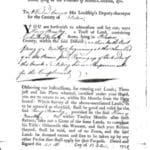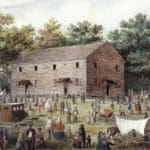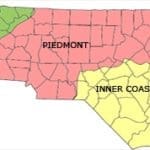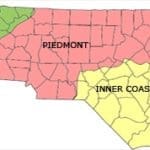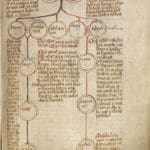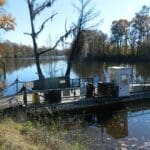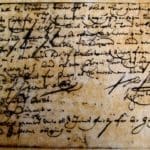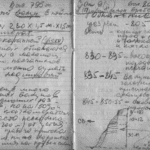The following are complete webinar recordings. Click on the title of the webinar to visit that page for online viewing. The PDF handout for the webinar is available for download on the same page.
A complete listing of all handouts, with links, are available on the Member Webinar Handouts page.
Recordings of live webinars will be added to this page, typically two to three weeks after the live presentation.
- Proving Parentage with Probate Records: North Carolina Inheritance Laws and Customs
 — Presented by Helen F. M. Leary, CG (Emeritus), FASG, FNGS — This webinar details where to look for land records and why they are important. North Carolina inheritance law and probate are explained. Analysis of the evidence found in these documents can yield clues to your ancestor’s prior location ...
— Presented by Helen F. M. Leary, CG (Emeritus), FASG, FNGS — This webinar details where to look for land records and why they are important. North Carolina inheritance law and probate are explained. Analysis of the evidence found in these documents can yield clues to your ancestor’s prior location ... - Quaker Records and Migration
 — Presented by Craig R. Scott, CG, FUGA — This webinar will examine the creation of Quaker records and their meaning for the researcher. The reasons for migration and migration patterns before and after the Revolutionary War will also be explored.
— Presented by Craig R. Scott, CG, FUGA — This webinar will examine the creation of Quaker records and their meaning for the researcher. The reasons for migration and migration patterns before and after the Revolutionary War will also be explored. - Secretary of State Papers: Don’t Let the Title Fool You – Genealogical Gems Abound!
 — Presented by Diane L. Richard, MEng, MBA — North Carolina genealogists frequently explore county records for the rich record resource that they are. Do you know that many relevant records are “hidden” in paperwork that is found in state-level collections? The Secretary of State Records, 1663-1985, is one such ...
— Presented by Diane L. Richard, MEng, MBA — North Carolina genealogists frequently explore county records for the rich record resource that they are. Do you know that many relevant records are “hidden” in paperwork that is found in state-level collections? The Secretary of State Records, 1663-1985, is one such ... - Tarheels in Your Family Tree? Part 1
 — Presented by Helen F. M. Leary, CG (Emeritus), FASG, FNGS — The genealogy of North Carolina geography (Part 1 of 2). These webinars serve as the lead off webinars for the North Carolina Series, and provide a solid background on the history of the state and the available records.
— Presented by Helen F. M. Leary, CG (Emeritus), FASG, FNGS — The genealogy of North Carolina geography (Part 1 of 2). These webinars serve as the lead off webinars for the North Carolina Series, and provide a solid background on the history of the state and the available records. - Tarheels in Your Family Tree? Part 2
 — Presented by Helen F. M. Leary, CG (Emeritus), FASG, FNGS — The genealogy of North Carolina geography (Part 2 of 2). These webinars serve as the lead off webinars for the North Carolina Series, and provide a solid background on the history of the state and the available records.
— Presented by Helen F. M. Leary, CG (Emeritus), FASG, FNGS — The genealogy of North Carolina geography (Part 2 of 2). These webinars serve as the lead off webinars for the North Carolina Series, and provide a solid background on the history of the state and the available records. - Timelines in Genealogy: A Valuable Tool & Definitely Worth the Time
 — Presented by Diane L. Richard, MEng, MBA — Learn about timelines and how they might help you solve your puzzles. Creating a chronological multi-columned matrix can help you focus on missing gaps, clarify seemingly contradictory information, discover previously invisible relationships, and identify paths to future discoveries.
— Presented by Diane L. Richard, MEng, MBA — Learn about timelines and how they might help you solve your puzzles. Creating a chronological multi-columned matrix can help you focus on missing gaps, clarify seemingly contradictory information, discover previously invisible relationships, and identify paths to future discoveries. - What is New is Also Old – Tolls: Have You Explored these Records for Your Ancestors?
 — Presented by Diane L. Richard, MEng, MBA — The concept of tolls is not new. Depending on where your Tar Heel ancestor lived and, especially if a body of water needed to be crossed or a new turnpike was recently put into operation, tolls/fees were paid. How many of you have cars with E-Zpass/NC ...
— Presented by Diane L. Richard, MEng, MBA — The concept of tolls is not new. Depending on where your Tar Heel ancestor lived and, especially if a body of water needed to be crossed or a new turnpike was recently put into operation, tolls/fees were paid. How many of you have cars with E-Zpass/NC ... - Where They Walked: Working With Deeds
 — Presented by Kathy Gunter Sullivan, CG — Researching deeds, discussing terminology, the variety of conveyances a researcher may encounter, analyzing details, and following clues to additional resources.
— Presented by Kathy Gunter Sullivan, CG — Researching deeds, discussing terminology, the variety of conveyances a researcher may encounter, analyzing details, and following clues to additional resources. - Zotero: A Versatile Research Tool for Genealogists
 — Presented by Patti Lee Hobbs, CG® — Zotero is open-source software developed specifically for researchers. It is designed to help users “collect, organize, cite, and share research.” Zotero helps researchers organize the way they search and collect information, while providing a means to quickly and easily cite the source ...
— Presented by Patti Lee Hobbs, CG® — Zotero is open-source software developed specifically for researchers. It is designed to help users “collect, organize, cite, and share research.” Zotero helps researchers organize the way they search and collect information, while providing a means to quickly and easily cite the source ...

